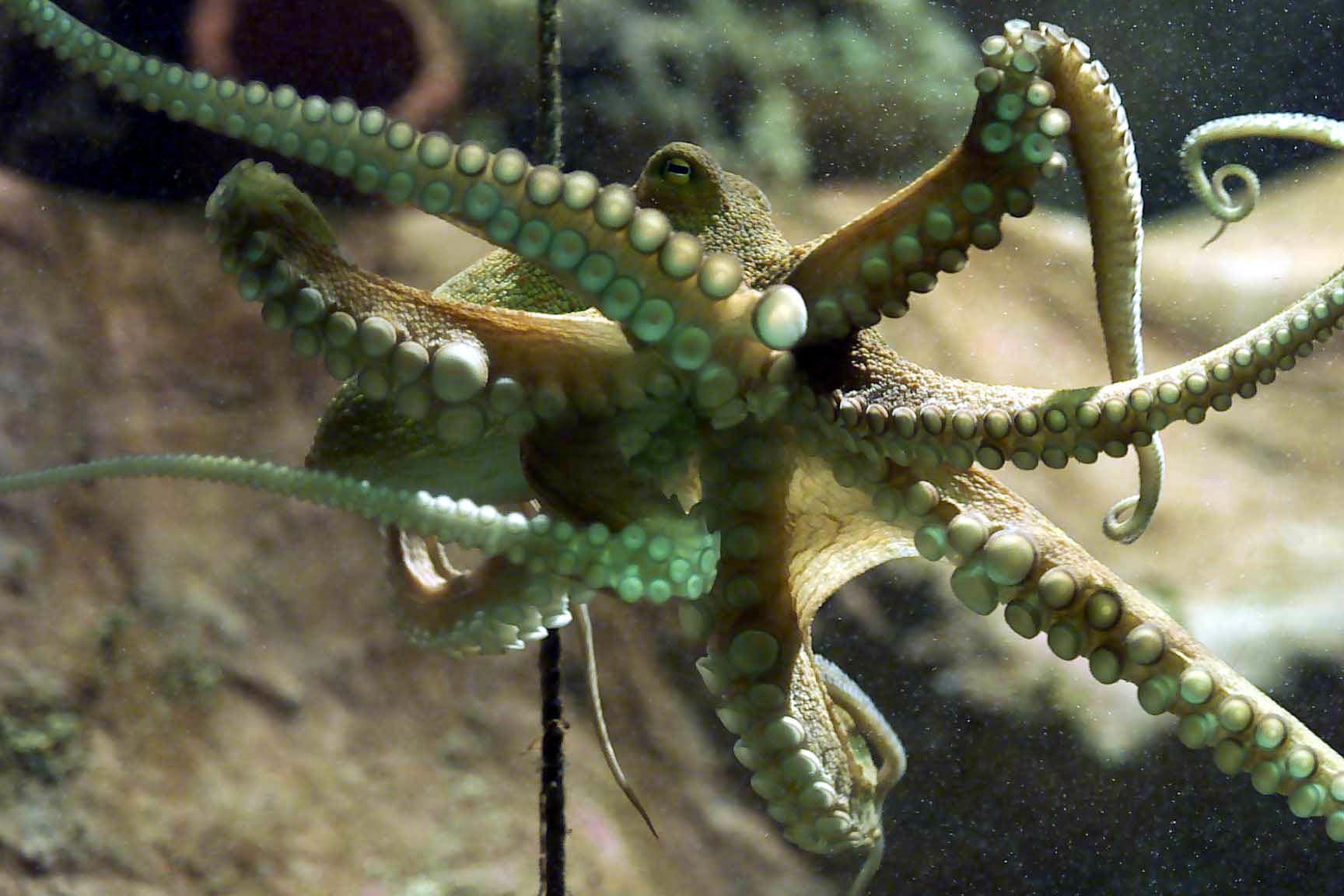Proposed Canary Islands octopus farm would cause animal suffering, say experts
Animal welfare organisations are urging the islands’ government to block the development.

Your support helps us to tell the story
From reproductive rights to climate change to Big Tech, The Independent is on the ground when the story is developing. Whether it's investigating the financials of Elon Musk's pro-Trump PAC or producing our latest documentary, 'The A Word', which shines a light on the American women fighting for reproductive rights, we know how important it is to parse out the facts from the messaging.
At such a critical moment in US history, we need reporters on the ground. Your donation allows us to keep sending journalists to speak to both sides of the story.
The Independent is trusted by Americans across the entire political spectrum. And unlike many other quality news outlets, we choose not to lock Americans out of our reporting and analysis with paywalls. We believe quality journalism should be available to everyone, paid for by those who can afford it.
Your support makes all the difference.Allowing a proposed octopus farm in the Canary Islands would result in animal suffering, environmental damage and could disrupt the islands’ tourist trade, environmental and animal welfare organisations have warned.
In an open letter to the Canary Islands Government, 43 groups covering Spain, the UK and worldwide are urging ministers there to block what would be the world´s first large-scale octopus farm in the Port of Las Palmas, Gran Canaria.
The Spanish company Nueva Pescanova, which plans to raise about a million octopuses a year, producing 3,000 tonnes, has denied that the animals would suffer.
In 2019, they announced a breakthrough after decades of companies looking to breed the cephalopods, saying they are now able to control their reproductive cycle.
They belong in our oceans, not in farms. They are sentient creatures that feel pain, suffering and distress, just like other animals
In plans sent to the Canary Islands government, the company said the creatures, which are used to living in the dark, would be kept in about 1,000 communal tanks in a two-storey building in the port, at times under constant light.
Known in Spanish as pulpo, octopus is a delicacy in Spain and is found in tapas dishes across the country.
It is usually caught in the wild and is also eaten in other Mediterranean countries and across the world.
In their letter, sent to coincide with world octopus day on Sunday, the non-governmental organisations (NGOs) referenced reports from the London School of Economics (LSE) and Compassion in World Farming which found that octopuses cannot be farmed in a way that protects their welfare.
The creatures live and hunt alone and would suffer in empty tanks that offer no stimulation to their intelligent brains, resulting in possible aggression and cannibalism, the NGOs said.
Plans to slaughter the octopuses in icy water would also cause them to suffer slow and painful deaths, they added.
In 2021, the UK Government recognised octopuses as sentient beings, following the LSE report with Lord Zac Goldsmith saying “the science is now clear” that they can feel pain.
Elena Lara, research manager at Compassion in World Farming, said: “They belong in our oceans, not in farms. They are sentient creatures that feel pain, suffering and distress, just like other animals.
“Not only would farming them be cruel and unnecessary, it would also be unsustainable and damaging to our oceans.
“They would need to be fed wild-caught fish in captivity – a practice that would contribute to overfishing and food insecurities in already vulnerable communities around the world.”
There are no set rules on octopus welfare as they have never been farmed at scale before, though scientists and environmentalists have been voicing increasing concern about the proposed practice.
This has led to the US state of Washington banning it before it starts, while the RSPCA and Friend of the Sea have ruled out certifying octopus meat from farming.
Ms Lara said: “We strongly urge the Canary Islands authorities to do the right thing and reject these cruel and environmentally damaging plans to farm octopuses, once and for all.”
Nueva Pescanova and the Canary Islands government have been contacted for comment.